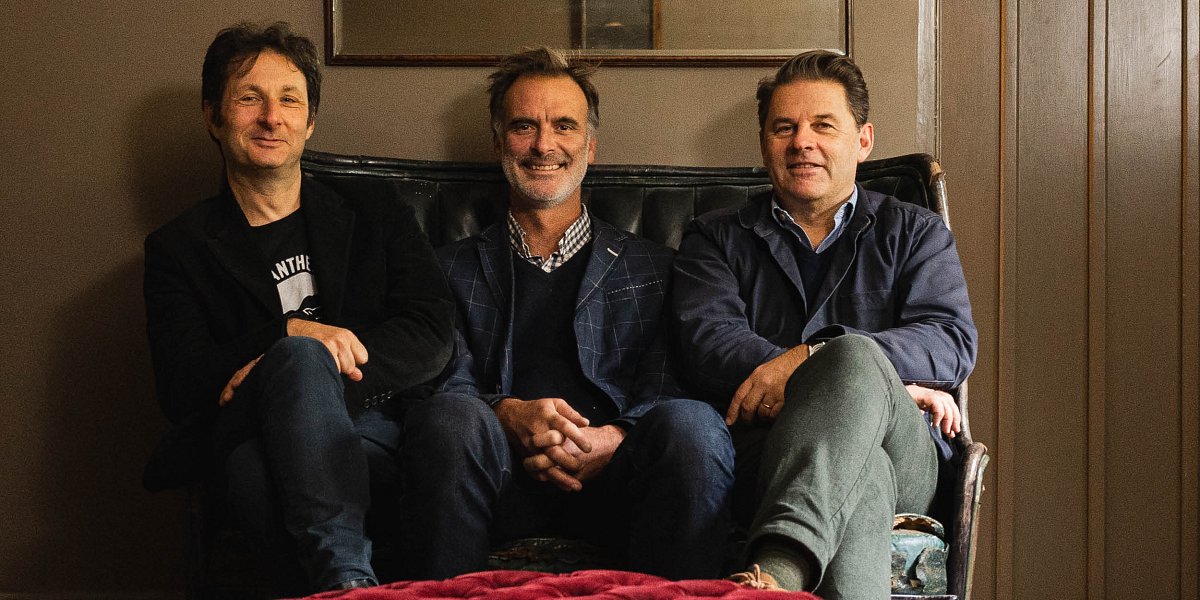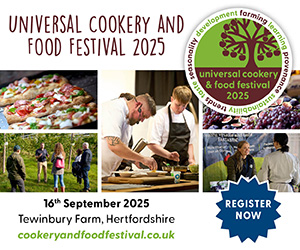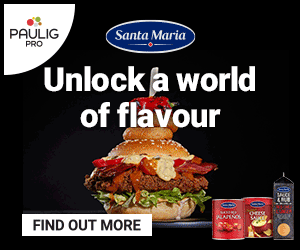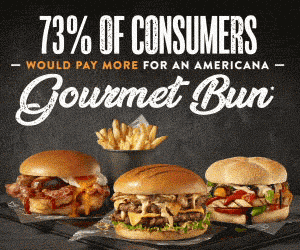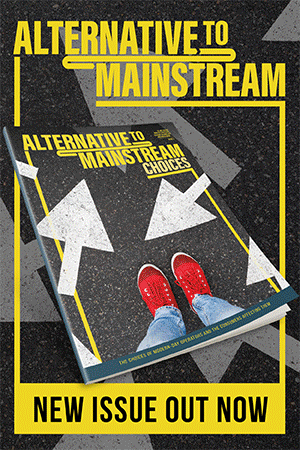The Beckford Group operator profile
The Beckford Group, a six-strong outfit in Wiltshire and Somerset, has quietly built a premium operation admired by thousands. Tristan O’Hana sits down with the three directors to discover the hows and whys.
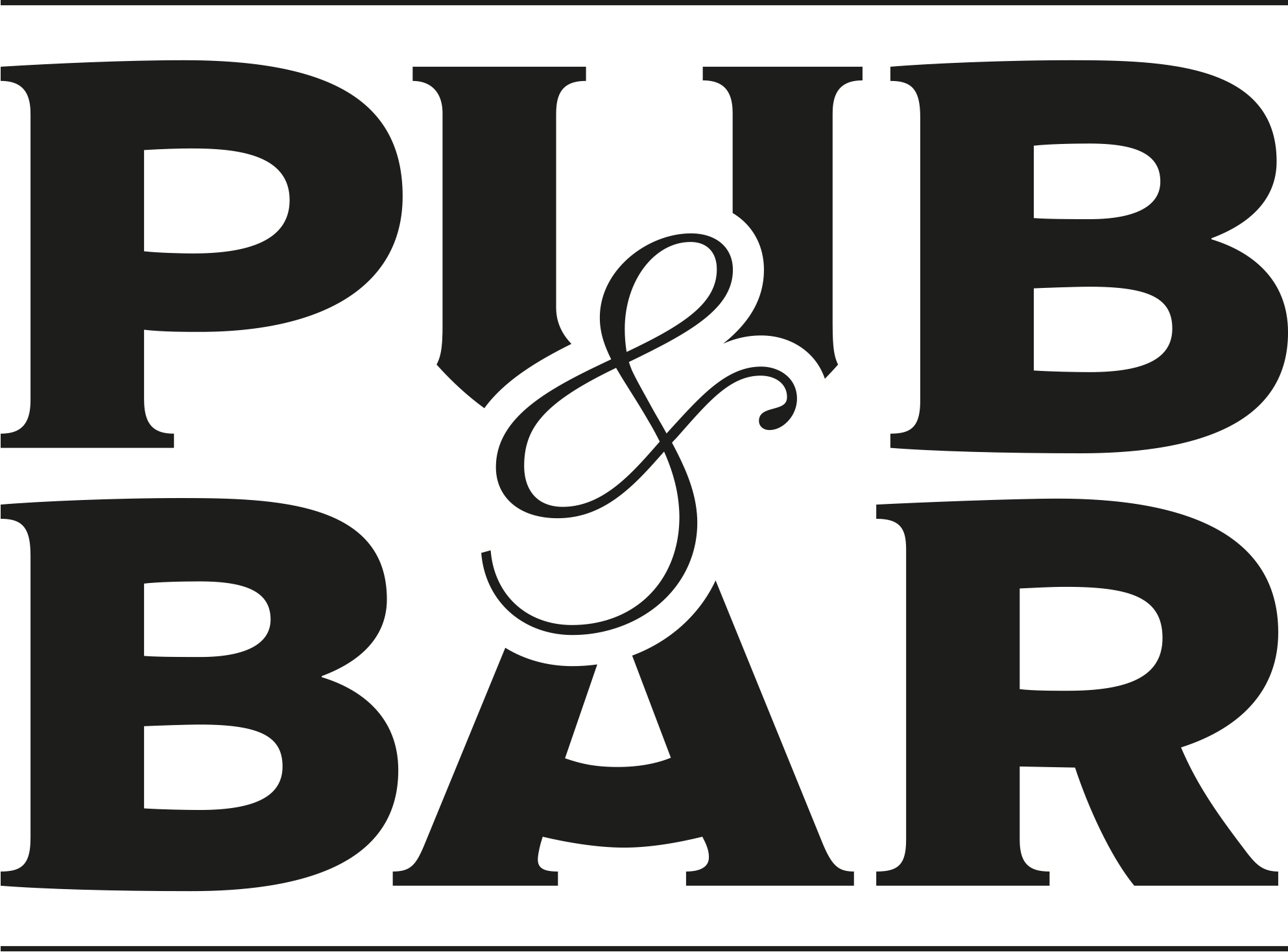
In the previous issue of Pub & Bar, you may have read a tale about my time in Wiltshire just after the Christmas period, where I visited the rather wonderful Grosvenor Arms in Hindon (not read it? Fear not – it’s available right here). During my time there, I popped up the road to drop in at – what some would say is – a bit of a legendary pub, particularly within the area.
While ordering a couple of Bloody Marys at The Beckford Arms, my wife and I overheard two gentlemen at the bar discussing in detail how Guinness shortages over the Christmas period may have affected the industry. It was obvious they were ‘in the trade’ and, after offering my opinion on the matter, I soon discovered I was chatting to Charlie Luxton (above right), co-owner of not just The Beckford Arms, but its parent company The Beckford Group. He generously paid for our drinks and we agreed to catch up soon and have a proper talk about the industry and, of course, his business.
Well, in this game, things move fast, and it wasn’t long before I was back in Wiltshire, this time at The Bath Arms in Longleat, sat in its PDR/shooting room in front of Luxton and his two business partners Dan Brod (above left), co-founder of The Beckford Group in 2009, and Matt Greenlees (above middle), who joined the business from Babington House in 2013. I’m a longtime admirer of this group, but this is the first time I’ve had the chance to talk to the trio who run it and delve a little deeper into the nuts and bolts that keep the cogs turning in such an admirable fashion. Prior to the meet, I could find nothing on how a seemingly successful and premium business was doing financially, so let’s dive right in.
“Year-on-year, we’re up,” says Brod. “But as we know, the cost of everything has gone through the roof, so turning the top-end sales into bottom-line profits is harder. Turnover has increased, but that’s because we’ve risen our prices slowly. We don’t like to share numbers about each of the pubs, but as a group we’re turning over more than £10m.”
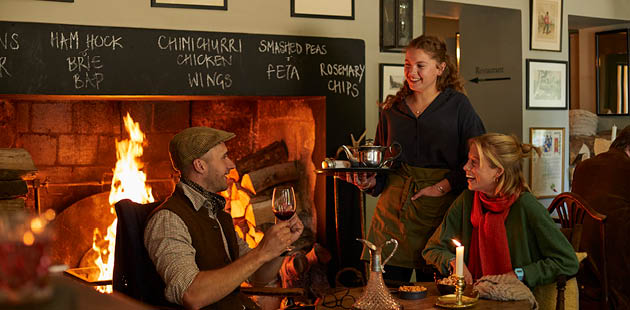
Fires and candles lit at The Beckford Group
A bit of background
For those not familiar with The Beckford Group, currently the estate is made up of The Beckford Arms, The Bath Arms, The Talbot Inn (Mells), The Lord Poulett Arms (Hinton Saint George), and The Beckford Bottle Shop and The Beckford Canteen, both of which are in Bath. A side-arm to the business is the bath and body product brand Bramley, founded by Chloë Luxton, who originally created the range for the group’s first site The Beckford Arms. As you probably know, Bramley has done quite well ever since.
As has The Beckford Group as a whole, really. Despite being made up of just six venues, these guys have built a reputation as one of the best operators in the pubs with rooms business, creating destination sites that guarantee a premium pub experience without pretention, alongside a boutique style of aesthetic and service akin to the early days of the Soho House group. This comparison is common, as not only did Greenlees spend seven years at Nick Jones’ Babington House (part of the Soho House estate), but Luxton was the operations and property director there for a decade, helping create the members club brand that is well-regarded across the globe.
“Matt and I grew up at Soho House together,” says Luxton. “And that was where we learned all this, it was all gut feeling in those days. But we have brought it to here and adapted it to the pub environment. Soho House was its best when it was relatively small, as are most companies in hospitality.”
“What’s different with us is it still connects to the three of us,” adds Brod. “I think when you become 100 sites or whatever, it doesn’t really connect back to you. We always talk about our expansion, but we want to remain connected to our sites.”
This was no more evident than in the early days of The Beckford Group, when the owners would still be working the floor, delivering the level of detail and hospitality that they set for themselves. Now, with hundreds of employees across their venues, they have had to find other ways of keeping those precise aspects of attention in play.
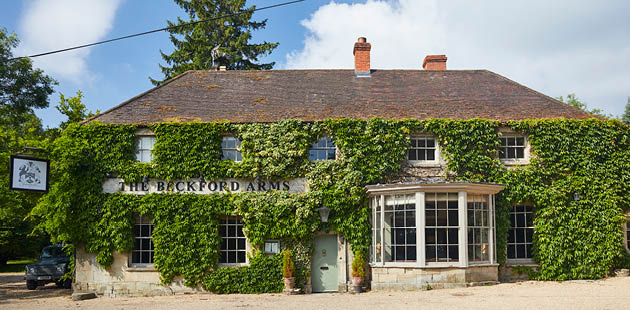
The Beckford Arms, the first site for the group
Have you done your homework?
During our interview, it doesn’t take long before I am presented with a Beckford-emblazoned tote bag, which contains my “homework”, I am told by Brod. He laughs, of course, as he hands me the bag, but sincerely suggests I have a good read through its content. Inside, there are four items to flick through at first, then get lost in later: Welcome to The World of Beckford; The Guest Journey; The Knowledge; and A Waiter’s Handbook – The Art and Heart of Hospitality. The latter, I kid you not, is arguably the most impressive team training ‘manual’ I’ve seen in all the years I’ve been doing this job. The detail, passion and genuine care written on every page is of such use to those who value true hospitality, that I’m a little surprised they’ve given me a copy to write about for you all. But, while they will obviously always focus on the success of their own business, these guys seem just as loyal to the industry as a whole.
“We’ve developed all these things which are a little bit unusual and might be interesting to your readers,” says Brod. “Before anybody can work on our floor, they get A Waiter’s Handbook, which is a thing we wrote on… how to be a waiter. Your 19- or 20-year-olds, an average member of staff, they don’t know how to be a waiter, right? They might not have been to as many places as we might have been to, learn what we’ve learned. So, they’ve got to read that book. Then each site has its own specific piece called The Knowledge, which is 100 questions they have to be able to answer about the pub and the area.”
Again, maybe I’ve been asking the wrong questions for all these years, but I’ve never seen anything like this before. I’m given ‘The Knowledge’ on The Talbot Inn, which contains questions on the pub, its history, the food, the bedrooms, health and safety. What is Coppa? Who owns the Mells Estate? Why do we use rapeseed oil? How do you describe hospitality? It’s detailed, it’s bespoke and, crucially, it’s evident in the Beckford people you encounter when visiting each site.
“It’s pre-emptive training,” says Brod. “It means that if you come onto one of our floors, you know a lot about what the guest might ask you. Then we’ve got a whole thing we’ve developed called The Guest Journey, about how you take customers through it. It’s a whole suite of stuff that we’re doing, as we want to be a nurturer of hospitality. It took a long time to develop our own DNA, and what we’re trying to do as operators is to get our DNA into every single one of our staff.”
“The big push for us in 2025 is the hospitality,” adds Greenlees. “You have to make sure guests have a bloody good experience. Every day we’re working with our teams – it could be a message sent from our training manager Dan, which last week was on first impressions. He sends a message to management teams, and they then use that as a focus point to discuss hospitality among the groups. We call that communication Beckford Bites, where we will do 15-minute sessions before briefings, both lunch and dinner. It’s about asking ourselves ‘how can we be better than the next pub?’”
“It is really what we are about and staff reacting so positively to the information has a very immediate effect on the business,” Luxton tells me the day after the interview takes place. “At the same time, seeing an inexperienced 18-year-old beginning to understand what hospitality is (rather than just service) is deeply rewarding to us personally. Without being too grandiose, these basic skills will be used for the rest of their lives and even while they are working with us, we see actual changes in their demeanour as they absorb and grow up, often over just a few months.”
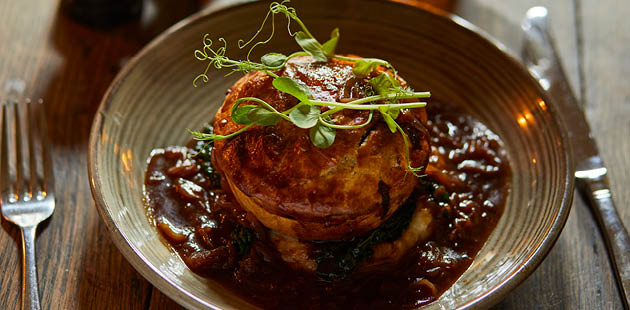
Hearty, British fare from The Beckford Group
Costs, details and adaptation
When you walk into any Beckford venue, it’s ready for you. What do I mean? Well, I offer the guys an example of a recent pub visit closer to home where, 20 minutes after opening, candles and fires weren’t lit, radiators were off, a table used for a team meeting wasn’t cleared. It wasn’t ready for service. I ask them why, in a world where first impressions and repeat custom is crucial for survival, many are still falling short?
“It’s all about detail and care,” says Luxton. “But those things are being compromised. Candles won’t be lit, they would have had two waiters on two years ago, now they’ve got one, they leave the heating off to save a bit more money. It comes down to cost.”
“We spend £3,000 a month on candles alone,” adds Greenlees. “That’s out of our pocket, but it creates the atmosphere we want for our pubs.”
On the cautious topic of costs, despite their success, the trio know their business is just as vulnerable as the next, as pubs, bars and all of the hospitality industry approach increases in many areas of business come April. How does The Beckford Group mitigate against such daunting horizons?
“You either increase the price to the punter or you reduce the number of staff,” says Luxton. “If you want to try and keep the punter coming in the door, you’re very nervous about reducing the staff and very nervous about increasing the price. So, we’re doing a little bit of both. Ultimately, what’s suffering is our bottom line, so we’re taking a view at the moment that whatever we may have made has changed and we are the ones taking the hit.”
“The fundamental metrics of the pub business have changed forever,” adds Brod. “This is going to be the toughest financial year for this industry, tougher than Covid in my view. You have got to adapt. This year, some people are very sadly going to go out of business, but it’s because they haven’t adapted. You can’t moan on about this. You’ve got to be optimistic, you’ve got to love what you do and you’ve just got to adapt and be nimble enough to go with it and not get stuck in your ways. We’ve seen this coming and we’ve been getting ready for it, so that’s why I’m optimistic about us.”
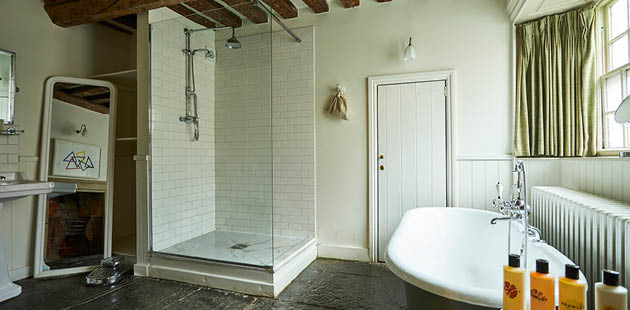
Room for the night - one of the many en-suites across the estate
What’s next?
Brod’s optimism hasn’t just materialised from recent planning over upcoming changes, though. This is a business that’s been running successfully since 2009. What’s more, Beckford is self-funded, with its pub-by-pub profits allowing for its gradual expansion over the last 16 or so years. Self-assurance then is justified. But six venues in 16 years? One could argue that is rather slow growth for such a revered company.
“Growth has been slow for us, because the pubs have got to be perfect,” says Greenlees, referencing the spectacular locations of each one. “Trying to find a perfect pub is tough.”
“What we’re trying to do in all our sites is be a place for locals that is interesting enough and good enough to attract people from very far away,” adds Brod. “That’s how you get the numbers through the door. You have to mix those markets.”
Despite its modest expansion over a decade and a half, The Beckford Group could actually reach 10 venues by this time next year. While its first hotel, Teffont House, was due to open in autumn 2023, “incredibly complicated planning permission” has pushed that into early 2026. Alongside that is the imminent Corsham House – a 14-bedroom hotel featuring another Beckford Bottle Shop, a bistro and a Bramley Spa, which should open this winter. Then, perhaps less common knowledge is the plan to open two more pubs in the next three or four months in the surrounding area, one of which has an already established following and trade. Alas, that’s all I’m allowed to share with you at this stage.
This would take them to a 10-strong business, something of a milestone. What happens then? Do they sell? Do they keep growing? Do they merge with another business?
“We are thinking about all that,” says Brod. “I don’t have much more to say on it, but we are thinking about it, as is everyone in our position. It’s difficult to know what the optimum size is for an increasing head office function. A growing pain of all small groups is do you just stay small and beautifully formed, or do you grow? For us, the growth is for two reasons. One is genuinely to provide a route for our staff to grow and develop, so they can go and be a manager. And two, it’s economies of scale. We’ve developed this tribe of 45,000 people on our database, and they like what we do, and they want to go to more of it. So it makes sense to give them that.”
If they were ever to sell for the sake of growth, I ask, would it not risk the continuity of what they’ve already produced and achieved?
“100%,” concludes Brod. “And that’s why it’s very unclear about what to do. It’s a fiddly business, isn’t it?”

